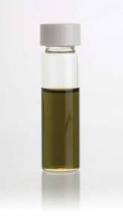From the Department of Too Much of a Good Thing:
It’s well known that taking too much of almost any medication can cause adverse effects, but for many complementary and alternative therapies, we lack studies showing whether or not they’re even effective, much less any information about overdosing.
A new study on aromatherapy using pure bergamot essential oil produced both results – it decreased blood pressure and heart rate during the first hour of exposure but increased blood pressure and heart rate with longer exposure (Eur. J. Prev. Cardiol. 2012 Nov. 29 [doi: 10.1177/2047487312469474]).
Health spas around the world use aromatic essential oils to relieve stress and generate a sense of well-being in their clients. One previous small study of U.S. graduate-level nursing students suggests that sachets infused with lavender and rosemary essential oils reduced test anxiety and pulse rates (Holist. Nurs. Pract. 2009;23:88-93).
The current study repeatedly measured resting heart rate and systolic and diastolic blood pressures in 100 young, healthy, nonsmoking spa workers in Taiwan who were exposed to essential oil vapors in a small room for 2 hours on each of three visits to the study center.
Essential oils are volatile organic compounds (VOCs) made up of hundreds of aromatic chemicals. The investigators used an ultrasonic ionizer to release 100% bergamot essential oil vapor in a roughly 11-feet by 10-feet room with a 13-feet-high ceiling, and measured VOC levels in the room throughout the exposure periods.
The room’s VOC level was positively and significantly associated with reduced heart rate and blood pressure in the first 15-60 minutes of exposure. For example, the mean heart rate decreased by 2 beats/min and the mean systolic blood pressure dropped by 2 mm Hg after 45 minutes of aromatherapy, Kai-Jen Chuang, Ph.D., and his associates reported.
Beyond 60 minutes, though, the mean heart rate rebounded and then some, to 2 beats/min higher than baseline by minute 75 of aromatherapy. Mean systolic blood pressure was 2 mm Hg above baseline after 75 minutes, reported Dr. Chuang of Taipei (Taiwan) Medical University.
It’s unknown whether lowering blood pressure and heart rate from short exposures to aromatherapy might reduce cardiovascular risk, and whether prolonged aromatherapy might increase risk. Other studies provide hints on how essential oils might be harmful, at least theoretically, Dr. Chuang suggested. In epidemiologic studies, hairdressers exposed to VOCs for more than 2 hours show increased serum levels of markers of inflammation and oxidative stress. Air pollution has been associated with the development of cardiovascular disease, causing a systemic inflammatory response through neural and central mechanisms, he noted.
While Dr. Chuang’s findings give me another reason to light scented candles for a relaxing bath (as if I needed another excuse), it also makes me wonder whether aromatherapy might be an occupational hazard for spa workers if they are exposed to VOCs for extended periods on the job.
And I can’t help wondering if there is any therapy (besides good old placebo) that we can’t get too much of.
Here’s a potential one – laughter in the company of others. A recent series of six small studies in the United Kingdom suggests that the endorphins released by social laughter increased pain tolerance, reports neuroscientist Robin I.M. Dunbar, Ph.D., and his associates (Proc. Biol. Sci. 2012;279:1161-7).
Dr. Dunbar, professor of evolutionary psychology at the University of Oxford (England), tested subjects both in laboratories and in the real world at stage performances during the Edinburgh Fringe Festival. We’re not talking about tiny tee-hees being beneficial, but about broad smiles and laughter that stretch the face.
The studies did not look at whether too much laughter might be too much of a good thing. If anyone is thinking of doing such a study, sign me up!
Dr. Chuang reported having no financial disclosures. The British Academy Centenary Research Project funded Dr. Dunbar’s studies, and he provided no other disclosures.
–Sherry Boschert (@sherryboschert on Twitter)



